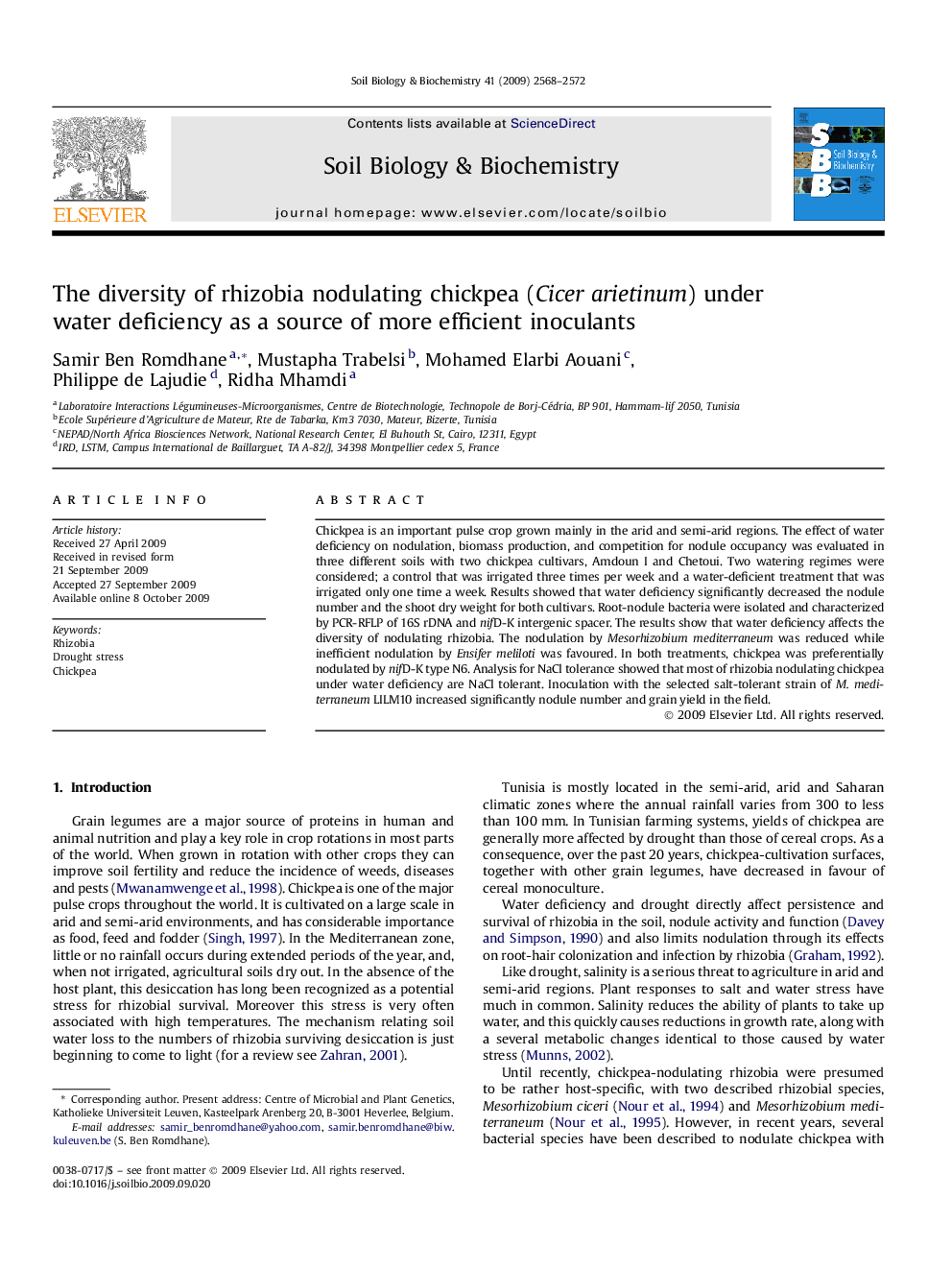| Article ID | Journal | Published Year | Pages | File Type |
|---|---|---|---|---|
| 2025794 | Soil Biology and Biochemistry | 2009 | 5 Pages |
Abstract
Chickpea is an important pulse crop grown mainly in the arid and semi-arid regions. The effect of water deficiency on nodulation, biomass production, and competition for nodule occupancy was evaluated in three different soils with two chickpea cultivars, Amdoun I and Chetoui. Two watering regimes were considered; a control that was irrigated three times per week and a water-deficient treatment that was irrigated only one time a week. Results showed that water deficiency significantly decreased the nodule number and the shoot dry weight for both cultivars. Root-nodule bacteria were isolated and characterized by PCR-RFLP of 16S rDNA and nifD-K intergenic spacer. The results show that water deficiency affects the diversity of nodulating rhizobia. The nodulation by Mesorhizobium mediterraneum was reduced while inefficient nodulation by Ensifer meliloti was favoured. In both treatments, chickpea was preferentially nodulated by nifD-K type N6. Analysis for NaCl tolerance showed that most of rhizobia nodulating chickpea under water deficiency are NaCl tolerant. Inoculation with the selected salt-tolerant strain of M. mediterraneum LILM10 increased significantly nodule number and grain yield in the field.
Keywords
Related Topics
Life Sciences
Agricultural and Biological Sciences
Soil Science
Authors
Samir Ben Romdhane, Mustapha Trabelsi, Mohamed Elarbi Aouani, Philippe de Lajudie, Ridha Mhamdi,
